Testing The Temperature - Extra
What do voters in Northern Ireland think about the Windsor Framework?
David Phinnemore, Katy Hayward and Lisa Claire Whitten[1]
April 2023
The report is available to download here:
Executive Summary
- Most voters in Northern Ireland view the Windsor Framework favourably, with only a small proportion of respondents having ‘no opinion’ on the topic. With the Windsor Framework, there has been a small but significant shift towards a more favourable view of the Protocol since our previous poll in early February 2023.
- The most significant movement in favour has come from among those who identify as ‘slightly unionist’ and ‘non-aligned/neutral’. There has been little change in the opinion of those identifying as ‘nationalist’ or as ‘strongly unionist’.
- Almost two thirds (65%) agree that the Framework reflects a genuine effort on the part of the UK Government and the European Commission to address the concerns raised by people and businesses in Northern Ireland about the Protocol; 26% disagree.
- Only a quarter of voters (25%) who identify as ‘strongly unionist’ agree that the UK Government and the European Commission made ‘a genuine effort’ to address concerns. The proportion rises to 63% of those who identify as ‘slightly unionist’.
- The overwhelming majority of ‘others’/’nationalists’ (>88%) believe that the Windsor Framework does represent a genuine effort to address Northern Ireland concerns.
- Over two thirds of respondents (69%) believe that Northern Ireland’s economy could potentially benefit from the revised trading arrangements agreed in the Windsor Framework; 19% disagree.
- Compared to our February 2023 poll, we see that the proportion of voters perceiving potential economic benefits from the Protocol with the Windsor Framework arrangements has risen from 62% to 69%; there has been decline among those disagreeing: from 29% to 19%.
- 48% of respondents who identify as a ‘strongly unionist’ do not see potential economic benefits, although 29% do. The proportion rises to 69% of those who identify as ‘slightly unionist’.
- With the Windsor Framework, 61% of respondents would like to see members of the Northern Ireland Assembly (MLAs) vote in favour of the continued application of the Protocol when they hold their ‘democratic consent’ vote in 2024. This compares with 51% in our last pre-Windsor Framework poll in February 2023.
- Self-declared understanding of the Windsor Framework is high, with a substantial majority of respondents (75%) claiming ‘a good understanding’ of the Framework.
- A significant minority of voters in Northern Ireland remain opposed to the Protocol on Ireland/Northern Ireland despite the Windsor Framework
- Almost a quarter (23%) will only vote for candidates in the next Northern Ireland Assembly election who are in favour of scrapping the Protocol and/or the Windsor Framework.
- A quarter (25%) would prefer the Northern Ireland Protocol Bill and unilateral UK action on the Protocol to the Windsor Framework; a majority of voters (51%) disagree, with most (37%) doing so strongly.
- Over a third (36%) believe the Windsor Framework should be renegotiated if it is not accepted by one or more Northern Ireland political parties; a majority (59%) disagree.
- Commitments in the Windsor Framework for increased UK Government and EU engagement with Northern Ireland stakeholders and political representatives regarding the implementation of the Protocol are welcomed and seen as important by more than three quarters (77%) of respondents.
- This includes the majority of respondents from across the political spectrum, with 56% of those identifying as ‘strongly unionist’ and 72% of ‘slightly unionist’ respondents welcoming these commitments.
- Voters are divided on the value of the Windsor Framework’s ‘Stormont Brake’
- 43% respondents agree that the ‘Stormont Brake’ provides an appropriate means for MLAs to influence changes to EU law applicable under the Protocol.
- Just over a third (35%) disagree; with almost a quarter (23%) ‘strongly’ disagreeing.
- Two thirds of respondents (66%) believe that, with the Windsor Framework agreed, the Northern Ireland Executive should be re-established; 29% disagree.
- Voters are divided on the significance of the Windsor Framework for Northern Ireland’s position in the United Kingdom.
- Just over a third (35%) agree that the Windsor Framework poses a threat to Northern Ireland’s position in the United Kingdom; a majority (57%) disagree.
- There is a significant gender difference here, with 27% of females believing that Northern Ireland’s place in the United Kingdom is threatened, compared to 42% of males.
- 81% of those identifying as ‘strongly unionist’ believe Northern Ireland’s place in the United Kingdom is threatened by the Windsor Framework arrangements (60% strongly so). Those who identify as ‘slightly unionist’ have more varying views on the subject: 43% agree and 46% disagree.
Introduction
On 27 February 2023 the UK Government and the European Commission announced the ‘Windsor Framework’, a set of arrangements and commitments designed to address ‘legitimate interests and… difficulties in the operation of the Protocol on Ireland/Northern Ireland [that] have emerged over the last two years’.
These include a ‘green lane’ for retail goods moving from Great Britain into Northern Ireland, a removal of restrictions on the movements of parcels, plants and pets into Northern Ireland across the Irish Sea, a ‘Stormont Brake’ for amendments and replacements to most EU law applicable under the Protocol, and enhanced arrangements for UK-EU engagement with stakeholders in Northern Ireland on its implementation.
This Testing the Temperature report presents the findings of a poll of Northern Ireland voters on the Windsor Framework that was conducted three weeks after the UK Government and the European Commission announced the deal. Respondents to the poll on 18-20 March 2023 were asked two sets of questions and offered the opportunity to provide written comments on the Protocol and the Windsor Framework.
The first set of questions covered views on different aspects of the Windsor Framework. The second set of questions asked participants how, in the light of the Windsor Framework, they would like members of the Northern Ireland Assembly (MLAs) to vote in the ‘democratic consent’ vote on Articles 5-10 of the Protocol that will be held at the end of 2024 and the importance of the Protocol for any future Northern Ireland Assembly election.
This ‘Windsor Framework’ poll survey was conducted as part of a three-year ESRC-funded research project on Governance for ‘a place between’ the Multilevel Dynamics of Implementing the Protocol on Ireland/Northern Ireland led by Principal Investigator, Prof David Phinnemore, at Queen’s University Belfast. The project involves a series of regular surveys to ‘temperature test’ voter attitudes on a range of issues relating to Brexit, the Protocol, and their implications for Northern Ireland. Seven polls have been conducted since the Protocol entered into force on 1 January 2021; the most recent of these polls was conducted 3-6 February 2023. The ‘Windsor Framework’ poll was commissioned as an extra poll in this series.
The poll surveys have been conducted by LucidTalk using its online Northern Ireland Opinion Panel. The results presented here are from a sample of 1201 of the 3145 responses to the survey undertaken on 18-20 March 2023. The sample of responses used is weighted to be representative of the adult population of Northern Ireland (e.g. by age, gender, region). All results presented are accurate to a margin of error of +/-2.6% at 95% confidence.
Views on the Windsor Framework
Opinion among respondents is for the most part positive about the Windsor Framework’s arrangements and their assumed implications. However, there remains a significant minority of voters resolutely opposed to the Protocol. The opposition is overwhelmingly found among voters who identify as ‘strongly unionist’. This is in line with the findings of previous Testing the Temperature polls held in 2021-2023.
Respondents generally claim a ‘good understanding’ (75%) of the Windsor Framework (see Figure 1).[2]
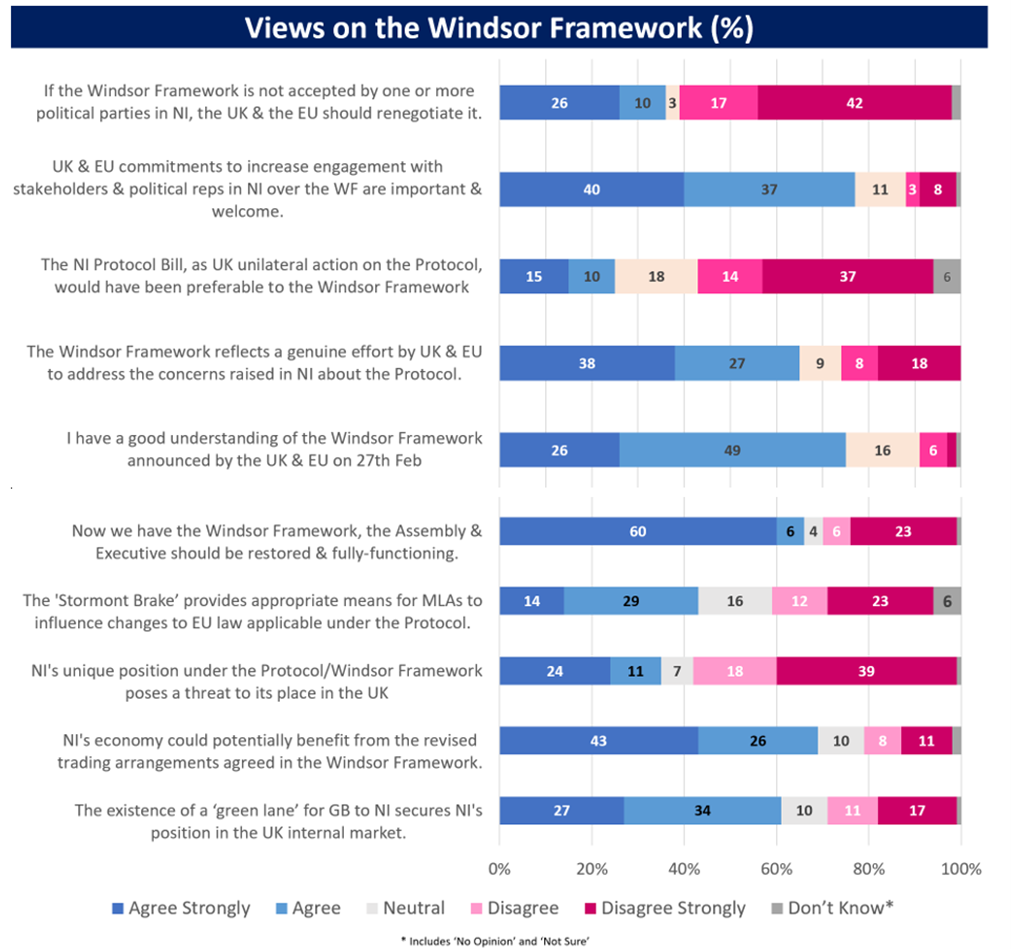
Figure 1. Views on the Windsor Framework
A ‘genuine effort’ to address concerns?
When asked whether the Windsor Framework reflects a genuine effort on the part of the UK Government and the European Commission to address the concerns raised by people and businesses in Northern Ireland about the Protocol, two thirds of respondents (65%) agree. Almost all of the 26% that disagree identify as ‘unionist’ (see Figure 2). Only a quarter (25%) of voters who identify as ‘strongly unionist’ agree that the UK Government and the European Commission made ‘a genuine effort… to address the concerns raised by people and businesses in Northern Ireland about the Protocol’. The proportion rises to 63% of those who identify as ‘slightly unionist’.
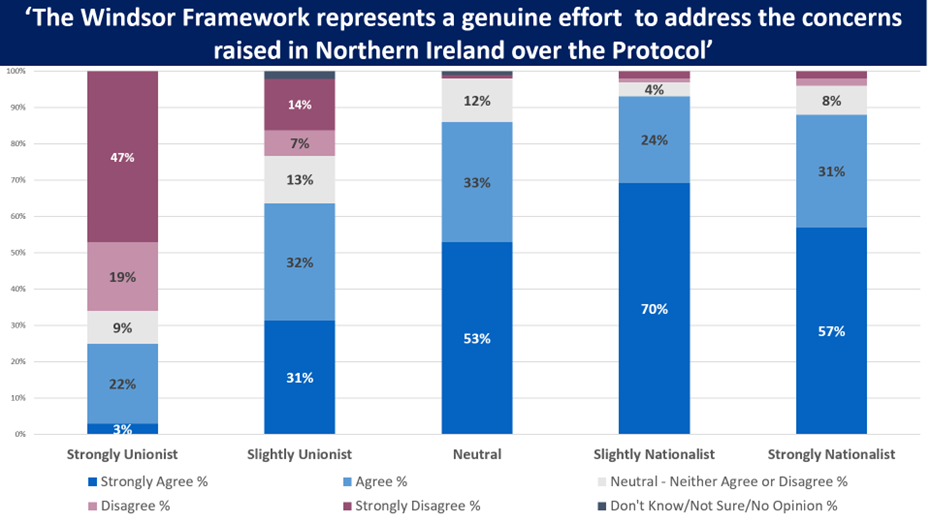
Figure 2. The Windsor Framework represents a genuine effort to address Northern Ireland’s concerns (by affiliation)
Should the Northern Ireland Assembly be functioning now?
Three in every five voters (60%) agree that the Northern Ireland Executive and Assembly should now be fully functioning; just under a quarter (23%) disagree (see Figure 3). Females are more likely to agree (68%) than males (52%). Younger people are more likely to agree than older people. What is particularly notable is how strongly held people’s views are on this matter – the vast majority have an opinion and they hold it strongly.
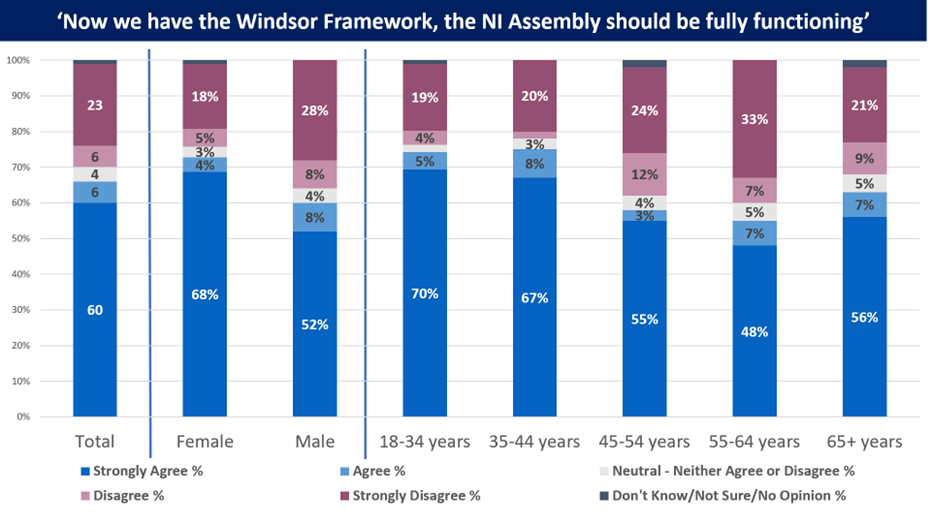
Figure 3. The Northern Ireland Assembly should be fully functioning (by gender, age)
Are there economic benefits?
There has been more significant change between February and March 2023 regarding the matter of the potential economic benefits for Northern Ireland under the Windsor Framework. Now seven out of ten (69%) respondents think Northern Ireland could potentially have economic benefits from the Windsor Framework, with two out of ten (19%) disagreeing. This is a shift from 62% and 29% respectively compared to February 2023 (see Figure 4).
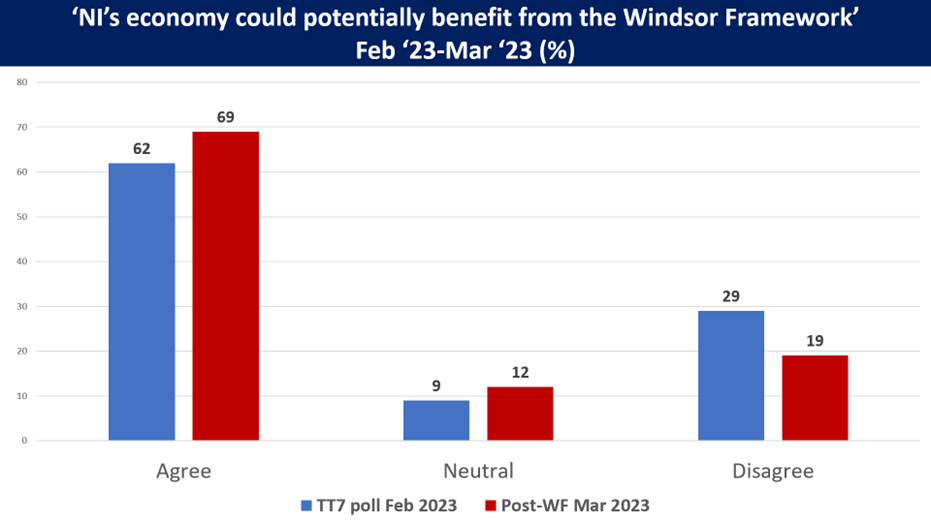
Figure 4. The Northern Ireland economy could potentially benefit from the Windsor Framework
In the most recent poll, the clear majority of respondents believing that the Northern Ireland economy could potentially benefit includes 43% overall strongly agreeing that this was the case (see Figure 1 above). Among the 19% who disagree are 48% of respondents who identify as a ‘strongly unionist’ (see Figure 5). That said, 29% of voters who identify as ‘strongly unionist’ agree that the Northern Ireland economy could potentially benefit from the revised trading arrangements. The proportion rises to 69% of those who identify as ‘slightly unionist’.
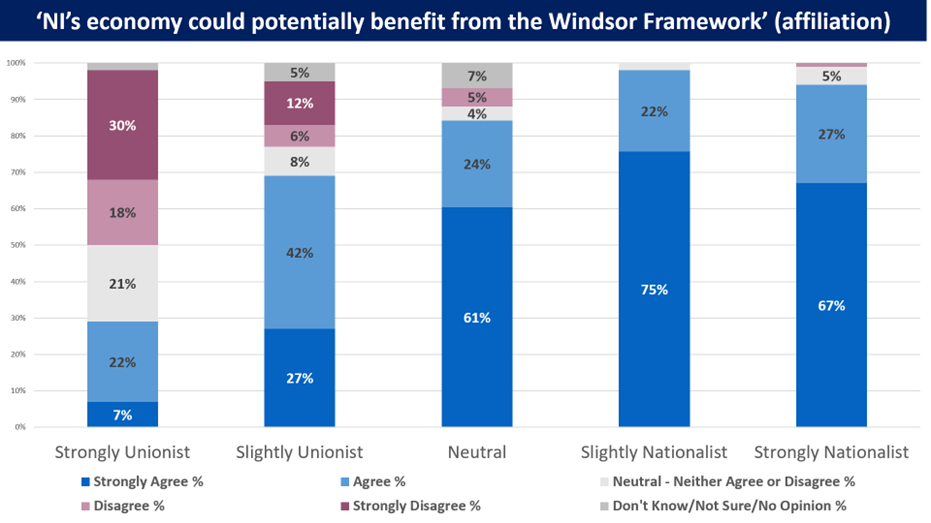
Figure 5. The Northern Ireland economy could potentially benefit from the Windsor Framework
How does the Windsor Framework affect Northern Ireland’s place in the United Kingdom?
A majority of respondents (57%) disagree that Northern Ireland’s unique position under the Protocol and Windsor Framework poses a threat to its place in the United Kingdom. Just over a third of respondents (35%) believe that the arrangements do pose such a threat (see Figure 6). Again, there is a significant gender difference here, with 27% of females believing that Northern Ireland’s place in the UK is threatened, compared to 42% males.
And there is a large difference between strong unionists and others on this matter. 81% of strong unionists believe Northern Ireland’s place in the UK is threatened by the Windsor Framework arrangements (60% strongly so). Those who identify as ‘slightly unionist’ have more varying views on the subject: 43% agree and 46% disagree. This is contrasted with 90% non-aligned, 93% ‘slightly nationalist’ and 80% ‘strong nationalist’ respondents disagreeing that this is so (see Figure 6).
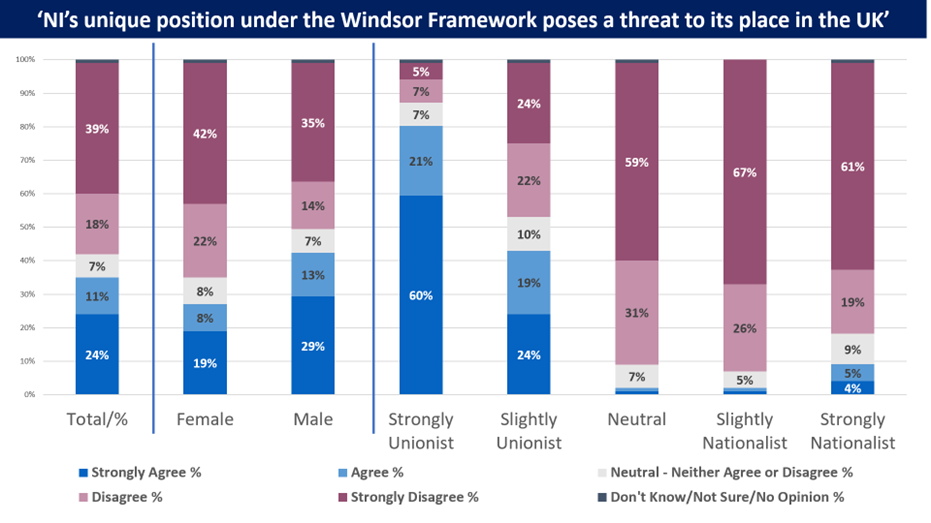
Figure 6. ‘Northern Ireland’s unique position under the Protocol/Windsor Framework poses a threat to its place in the United Kingdom’ (gender, affiliation)
Is stakeholder engagement important?
More than three quarters (77%) regard the commitments made by the UK government and the EU to increase engagement with stakeholders and political representatives in Northern Ireland as important and welcome (see Figure 1 above). This includes the majority of respondents from across the political spectrum in Northern Ireland (see Figure 7).
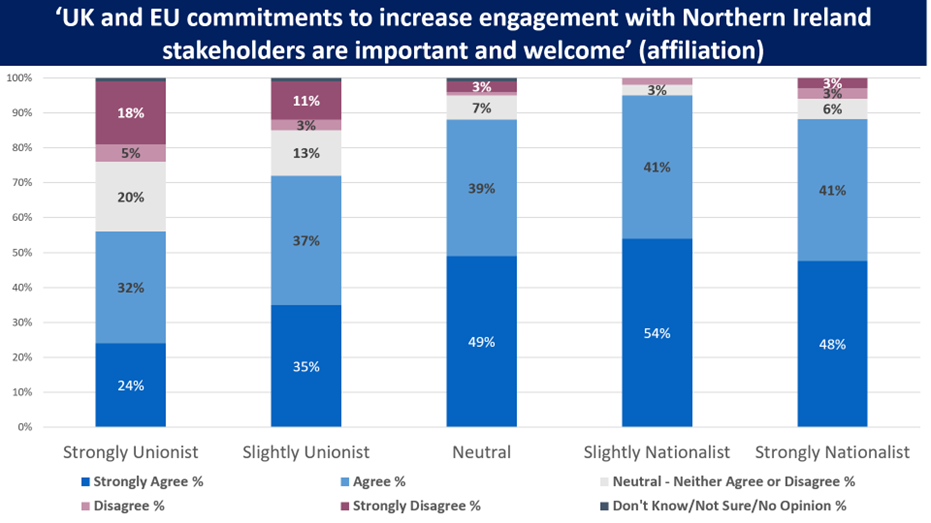
Figure 7. ‘Commitments to increase engagement with Northern Ireland stakeholders are important and welcome’ (by affiliation)
Is the Stormont Brake appropriate?
Views are more divided on the significance of the Stormont Brake, the new mechanism that allows MLAs (once the Northern Ireland Executive and Assembly are re-established) to block, under certain circumstances, automatic amendments and replacements to most EU law applicable under the Protocol. 43% see the Stormont Brake as providing an ‘appropriate means’ for MLAs to influence such changes to EU law; 35% disagree (see Figure 1 above).
Would the Northern Ireland Protocol Bill have been preferable?
As to whether the Windsor Framework is a more preferable outcome to unilateral UK government action under the Northern Ireland Protocol bill, a slender majority of respondents (51%) prefer the negotiated Windsor Framework (see Figure 1 above). Unusually, compared to other questions, a sizeable portion of respondents (24%) are either neutral on the matter or ‘don’t know’. A further quarter (25%) would have preferred unilateral UK action under the Northern Ireland Protocol bill. The progress of the bill through the UK Parliament is being stopped as part of the Windsor Agreement.
Should the Windsor Framework be renegotiated?
Renegotiation of the Windsor Framework deal has been ruled out by the UK government. Although most respondents (59%) say that it should not be renegotiated if one or more political party rejects its arrangements, just over a third (36%) think that the Windsor Framework should be renegotiated (see Figure 1 above).
The Windsor Framework and MLAs
How should MLAs cast their Democratic Consent vote on the Protocol in late 2024?
Under the ‘democratic consent’ mechanism in the Protocol, MLAs will decide whether to approve or not the continued application of core provisions (Articles 5-10) relating to the movement of goods and operation of the single electricity market on the island of Ireland. With the Windsor Framework and the changes it introduces, 61% of respondents want MLAs in 2024 to vote in favour of the continued application of the Protocol (see Figure 8).
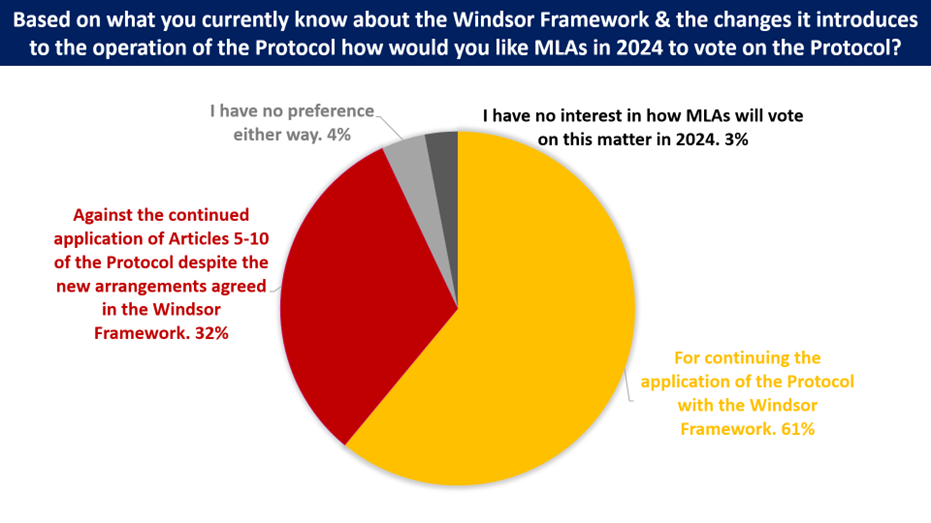
Figure 8. Preferred outcome from the Democratic Consent Vote of 2024.
This represents a ten percentage point increase on the previous Testing the Temperature polls. In the most recent poll in February 2023, a slender majority of respondents (51%) wanted MLAs for whom they had voted in the 2022 Northern Ireland Assembly election to vote in favour of the continued application of the Protocol (see Figure 13). Post-Windsor Framework, a third of voters (32%) want MLAs to vote against the continued application of Articles 5-10 on the Protocol in 2024. This compares to 41% in February 2023.
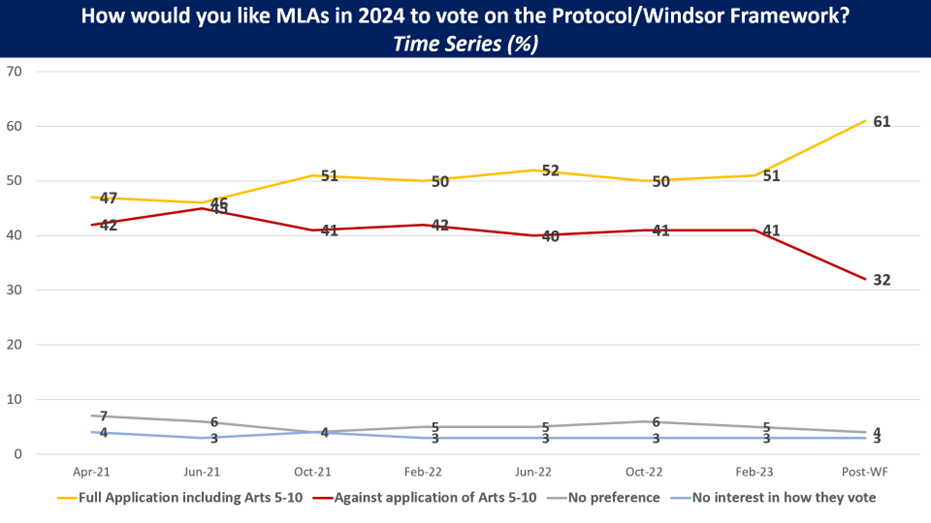
Figure 9. Preferred outcome from 2024 Democratic Consent Vote (time series) (%).
A majority of males and females want MLAs to vote in favour of the continued application of the Protocol in 2024, although females (68%) are more favourable to this position than men (54%).
How important is the Protocol/Windsor Framework for voting intentions?
Opposition to the Protocol remains, with almost a quarter of respondents (23%) indicating that they will only vote for candidates in the next Northern Ireland Assembly election who are in favour of scrapping the Protocol and the Windsor Framework (see Figure 10). The figure in February 2023 (prior to the Windsor Framework being agreed) was 22%. This indicates that the deal has provoked no discernible movement from those who previously wanted the Protocol scrapped altogether.
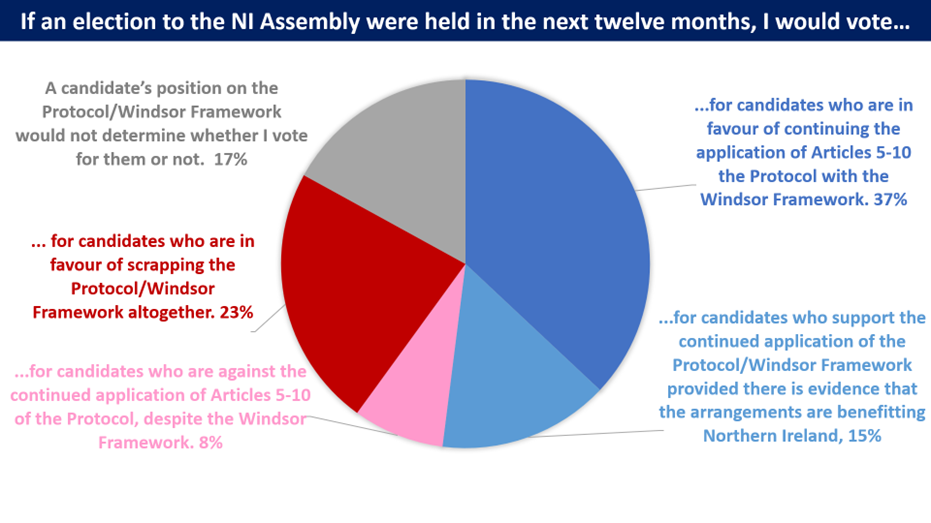
Figure 10. Voting intentions for a Northern Ireland Assembly election, by a candidate’s position on the Windsor Framework.
Written comments
Respondents also had the opportunity to provide anonymous written comments on the survey topic(s). Of the 3145 who completed the survey, 526 opted to express a view. It is important to underline that these comments were therefore not weighted to be representative.[3]
Views on the Windsor Framework/Protocol
Views on the Windsor Framework and/or Protocol in the comments were almost evenly divided between those who view it negatively and those who view it positively.
Examples of negative perspectives include:
“The ‘Windsor Framework’ doesn’t change anything. It is a dishonest, deceptive attempt to rebadge the Protocol with a few tweaks. An attempt to railroad unionists into compliance by describing it as something it’s not in order to blacken those that reject it.”
“The Windsor [Framework] only gives back a few things that the EU had taken away. It does not address the constitutional position of NI within the UK – the application of ‘green and red’ lanes still means there is a border between NI and GB…’NO’ to both the Protocol and Windsor Framework.”
“Protocol and Windsor [Framework] must go completely.”
“The Protocol has only been tinkered with. It needs to be scrapped. The Irish Sea Border still remains.”
Examples of positive perspectives include:
"Northern Ireland can attract investment with the Windsor Framework that could bring both peace and prosperity.”
“It puts Northern Ireland in a great trading position and [provides] a good incentive for new business opportunities.”
"The Protocol and Windsor Framework offer a real benefit to NI and will lead to increased trade.”
“The Windsor Framework is as good an outcome as possible after such a hard Brexit.”
A small number of comments submitted expressed concern about the ‘Stormont Brake’ either regarding its perceived inefficacy or the potential for vexatious use:
"The brake is not a brake, it is [a] pause at best and the EU Court of Justice still reigns supreme, so it is not a balanced framework. All sides need to be applauded [for] improvements but please stop presenting this as a panacea for the future.”
“I have concerns [that] the Stormont Brake is a unionist veto and would be abused much like the petition of concern was.”
“My support for the Windsor Framework depends on how powerful the ‘Stormont Brake’ is. Based on recent new it seems to be essentially useless. It would need to genuinely allow Stormont to prevent any new EU laws applying regardless of whether or not the EU, UK Gov or Joint Commission agree. If this is not the case, it does not solve the democratic deficit.”
Views on the absence of functioning Northern Ireland Assembly/Executive
The lack of functioning devolved government in Northern Ireland was the most prominent theme in the written comments provided, with almost two hundred respondents focusing on the issue. Roughly half of these specifically criticised the DUP for its ongoing protest against return of the Northern Ireland Executive or Assembly:
“The DUP should get back to work and let the Executive restart and if not then it needs to go ahead without them. It is past time we had a functioning government again.”
“The DUP need to get back to Stormont. The people have had enough.”
“DUP need to be brave. Explain to their base and move on!”
Other views focused on the absence of devolved government more generally with some in this category calling for reform of the institutions such that their collapse in future is less likely:
"It’s time we had a functioning Assembly, I believe those preventing it are causing irreparable damage to our people and our public bodies.”
"Politicians need to do the job they were elected to do and are being paid for. Changes to rules of Stormont are needed to stop any one party holding the country to ransom.”
“Those parties / politicians willing to serve should be allowed to go back and represent the public.”
“No single party should be allowed to collapse the Assembly. An option to form an executive should pass to the next largest party.”
“If the DUP don’t accept the deal, then an Executive should be formed without them.”
“If the DUP refuse to accept the Windsor Framework, then the British Government should introduce legislation to allow the Stormont Assembly to be reconvened without the DUP, and with the support of the next largest Unionist party. Regardless – the legislation government the formation of an Assembly should be changed to stop any one single party from any political affiliation from being able to prevent the formation of the Assembly.”
“We need an opposition government formed in Northern Ireland. 25 years after the [1998 Agreement] major changes are required to ensure Northern Ireland progresses beyond the current mess it is in.”
The report is available to download here:
